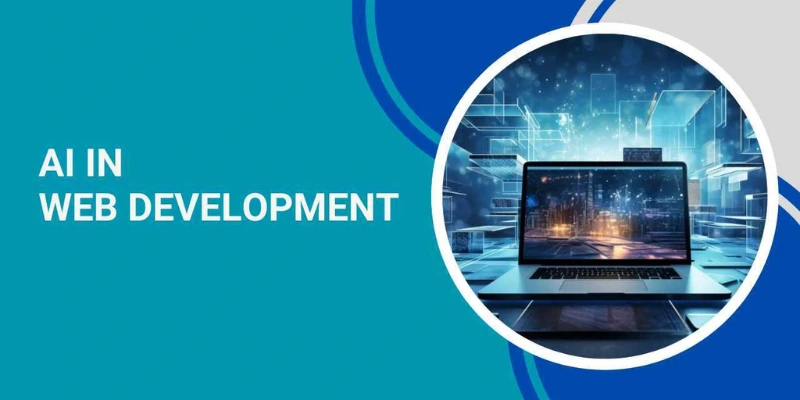
Let’s face it web development today is evolving faster than ever, and much of that change is being driven by Artificial Intelligence (AI). But is it a welcome evolution or a future threat to designers and developers?
If you’ve ever wondered how AI might impact your career, your business website, or even your learning journey in tech, you’re not alone. Whether you’re enrolled in a Web Development Course in Chennai, understanding the role of AI in web design and development is now more crucial than ever.
So, let’s explore this big question: Is AI helpful or harmful in web development?
What Is AI in Web Development, Anyway?
In simple terms, AI in web development refers to the use of intelligent systems that can learn, adapt, and automate specific aspects of creating and maintaining websites. This includes things like:
- Auto-generating code
- Personalizing content based on user behavior
- Improving SEO with predictive analytics
- Using AI-based testing tools for better quality assurance
- Enhancing user experience with chatbots and voice commands
These tools and techniques aren’t just fancy add-ons—they’re becoming an integral part of how modern websites are built and optimized.
How AI Is Helping Web Developers
Let’s look at the upside first. Here’s how AI for web development is proving to be an asset:
1. Faster Prototyping and Design
AI-powered platforms like Wix ADI or Bookmark use machine learning to create basic websites automatically. This is especially helpful for freelancers or startups who need to get online quickly.
2. Smarter Coding Tools
Tools like GitHub Copilot and Tabnine utilise AI to suggest code, identify errors, and accelerate the development process. Think of it as your intelligent coding assistant.
3. Enhanced User Experience
AI allows for personalized content recommendations, dynamic interface changes, and even accessibility enhancements, making websites more innovative and more user-friendly.
4. Improved SEO and Analytics
AI can analyze tons of data in real time, offering insights that help developers fine-tune everything from performance to keyword density, resulting in better rankings and conversions.
5. AI Testing & Debugging
AI tools can now run automated testing scripts that simulate real-world usage, dramatically reducing QA time while improving reliability.
These benefits make AI tools for web development a solid partner rather than a threat, especially when used mindfully and strategically.
The Other Side: Is AI Harmful in Web Development?
While AI brings convenience, it’s not without its downsides:
1. Loss of Creative Control
AI may generate websites or code fast, but they often lack the creativity and nuance that a skilled human designer brings, like choosing the right fonts for your website, or understanding the animation techniques for websites that truly capture a brand’s essence.
2. Generic Designs
AI often works within set patterns or templates. This can lead to bland, lookalike websites, which may fail to reflect the unique character of a brand or business.
3. Overreliance Can Hinder Learning
Beginners relying solely on AI may not fully grasp the fundamentals of HTML, CSS, or JavaScript. That’s why enrolling in a solid Web Designing Course in Chennai is still the best route to developing core skills and understanding what’s important in website design.
4. Security Risks
AI-driven features can create security vulnerabilities if not handled properly, especially when using auto-generated code or third-party tools without rigorous testing.
5. Ethical Concerns
AI can collect and analyze a lot of user data. Without transparent practices, this could infringe on privacy rights and ethical development principles.
Where Does AI Work Best in Web Development?
Here’s where AI-based web development truly shines:
- Content Generation: AI tools like ChatGPT can assist in writing product descriptions, blog posts, or error messages.
- Chatbots: Websites utilise AI-powered bots to provide 24/7 assistance to users, enhancing customer service and engagement.
- Predictive UX: AI can analyze behavior and show users content or features they’re likely to use, creating a smoother experience.
- Design Optimization: Tools can automatically test multiple layout combinations to find what performs best.
- Mobile Responsiveness: Many AI tools now help ensure mobile-friendly web design by automatically testing responsiveness across different devices.
Can AI Replace Web Developers?
Not quite—and probably not anytime soon.
AI is excellent for handling repetitive tasks and data analysis, but it lacks the human qualities of intuition, empathy, and creativity. A machine might generate a page layout, but only a human can tell if it truly connects with users emotionally.
Also, the ability to debug code, work in teams, and deliver a tailored product can’t be fully automated. That’s why skilled web developers are still in high demand and why many learners continue to choose a Training Institute in Chennai that focuses on both fundamentals and real-world project skills.
What Should You Learn in the AI Age?
In a world moving towards automation, the most valuable skills remain:
- Strong foundations in HTML, CSS, JavaScript
- UI/UX principles, including mobile-first design
- SEO best practices and analytics interpretation
- Version control (Git/GitHub)
- Understanding artificial intelligence in web applications
By learning how to use AI instead of fearing it, you’ll have the edge. Think of AI as a tool—not a replacement.
So, is AI helpful or harmful in web development? The answer is—it depends on how you use it.
If you’re a complete beginner relying only on AI tools to build your first website, you might miss out on the fundamentals. But if you’re combining core development skills with AI-powered tools to work smarter and faster, then it’s absolutely helpful.
Also read: How to Improve Your Website Speed?
